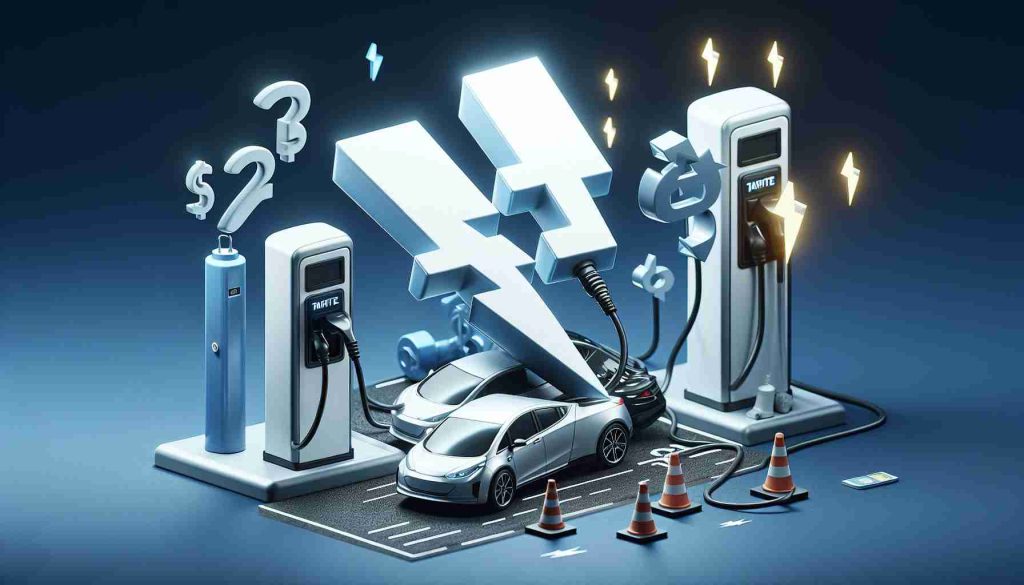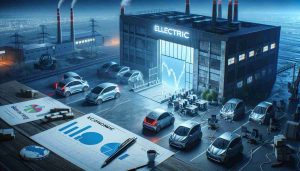Game Changer for Electric Vehicles! Tariff Cuts Ignite Excitement for EV Owners
5 min read
As electric vehicle (EV) ownership gains momentum, recent government actions to reduce tariffs on EV charging stations bring a breath of fresh air to the market. This pivotal change aims to not only lower costs for EV owners but also foster a thriving charging infrastructure that has been under strain due to inconsistent support policies.
Historically, purchasing and operating EVs has been a financial burden for many, attributable to fluctuating government policies. For instance, a previous federal initiative favoring imported electric vehicles was rendered ineffective as no major manufacturer could meet the regulatory requirements. Moreover, the economics surrounding EV charging facilities have been challenging, with price controls creating a situation where profitability was hard to achieve. Now, however, the new tariff adjustments have the potential to lower charging costs significantly, slashing expenses per kilometer driven by up to three times when compared to traditional gasoline vehicles.
A pressing concern for many potential EV buyers remains range anxiety—the fear of running out of battery power with limited access to charging stations. Although newer EVs match the fuel range of conventional cars, budget-friendly models lag in this regard, thereby necessitating more charging options. Enhancing access to charging stations not only addresses consumer fears but also aligns with the government’s goal to increase EV adoption, ultimately leading to reduced fuel imports and a substantial improvement in air quality across urban areas.
Charging Towards a Sustainable Future
The push towards electric vehicle (EV) adoption and the recent easing of tariffs on charging stations signifies a pivotal moment in the intersection of technology, culture, and the global economy. As cities around the world grapple with pollution and climate change, the transition to EVs represents not just an automotive shift, but a fundamental realignment of societal values towards sustainability.
This policy change is poised to stimulate economic growth by fostering a robust EV infrastructure, which will require a significant workforce to design, install, and maintain charging stations. The job creation potential in the clean energy sector can catalyze local economies, particularly in regions heavily reliant on fossil fuels. Moreover, as charging station access expands, the EV marketplace could flourish, enhancing consumer confidence, driving down costs, and stimulating wider adoption across demographic boundaries.
On the environmental front, the growing adoption of EVs could lead to substantial reductions in greenhouse gas emissions and urban air pollution. However, this transition must be balanced with the ecological impact of increased electricity demand. Policymakers must ensure that the additional load on power grids is met with renewable energy sources, laying a pathway to a cleaner future.
In the longer term, as technology continues to evolve, the industries surrounding EVs will likely innovate, potentially leading to advancements such as improved battery technology and autonomous charging systems. This evolution underscores a commitment to ensuring that sustainable transportation transforms not only how we travel but the very fabric of our society.
Unlocking the Future: New Tariff Reductions Fueling Electric Vehicle Adoption
The Impact of Reduced Tariffs on Electric Vehicle Charging Stations
As electric vehicle (EV) ownership surges, recent government initiatives aimed at reducing tariffs on EV charging stations mark a significant turning point in the market. This strategic move is designed not only to alleviate financial pressures for EV owners but also to create a robust charging infrastructure that has faced challenges due to inconsistent policy support.
Understanding the Financial Landscape of EV Ownership
Historically, buying and operating an EV has been costly for many. Fluctuating government policies have often hindered this transition. For example, prior federal incentives that favored imported electric vehicles fell short as major manufacturers struggled to comply with strict regulatory requirements. Moreover, the financial viability of charging facilities has been compromised by price controls, making it difficult for operators to turn a profit.
With new tariff adjustments, costs associated with charging could potentially drop significantly, reducing expenses per kilometer driven by as much as three times compared to traditional gasoline vehicles. This will not only ease the burden on current EV owners but also attract newcomers to the market.
Addressing Range Anxiety: A Critical Issue for EV Adoption
One of the primary obstacles for potential EV buyers is range anxiety—the fear of running out of battery with insufficient access to charging stations. While most newer EV models offer a driving range comparable to that of gasoline cars, budget-friendly variants still struggle in this area. This reality highlights the urgent need for an expanded network of charging stations.
Government Goals and Air Quality Improvements
Increasing access to charging stations does more than just relieve consumer apprehension. It aligns with government initiatives to boost EV adoption, which is crucial for reducing fuel imports and improving urban air quality. As more drivers transition to electric vehicles, communities can expect a significant decrease in harmful emissions, leading to healthier living environments.
Pros and Cons of the Current EV Climate
# Pros:
– Lower Charging Costs: Reduced tariffs could make charging stations more affordable to establish and maintain.
– Increased Infrastructure: More charging stations will alleviate range anxiety and encourage EV adoption.
– Environmental Benefits: Growing EV usage can lead to significant reductions in air pollution.
# Cons:
– Infrastructure Inconsistencies: Not all regions may see equal access to charging stations, particularly in rural or low-income areas.
– Continued Range Limitations: Budget EV models may still fall short in range, deterring some potential buyers.
Innovations and Trends in EV Charging
The electric vehicle sector is continuously evolving, with several innovations reshaping the future of EV charging:
1. Fast Charging Technology: New technologies are decreasing charging time, making electric vehicles as convenient as gasoline ones.
2. Wireless Charging: Companies are exploring inductive charging methods for a completely cable-free experience.
3. Smart Charging Solutions: These technologies can optimize charging times and costs by using renewable energy sources.
Sustainability and Security Considerations
As the EV landscape expands, sustainability remains a priority. Charging stations will need to incorporate renewable energy sources, minimizing their carbon footprint. Moreover, enhancing security measures at these stations will be essential to protect both the infrastructure and user data.
Conclusion
The recent changes in tariff policies herald a new era for electric vehicle ownership and charging infrastructure. By lowering costs and expanding access to charging stations, governments are not only promoting the adoption of EVs but also paving the way for cleaner air and a sustainable future. The road ahead looks promising as challenges are addressed, and innovations continue to transform the electric vehicle experience.
For more insights on electric vehicles and their impact on the environment, check out energy.gov.



